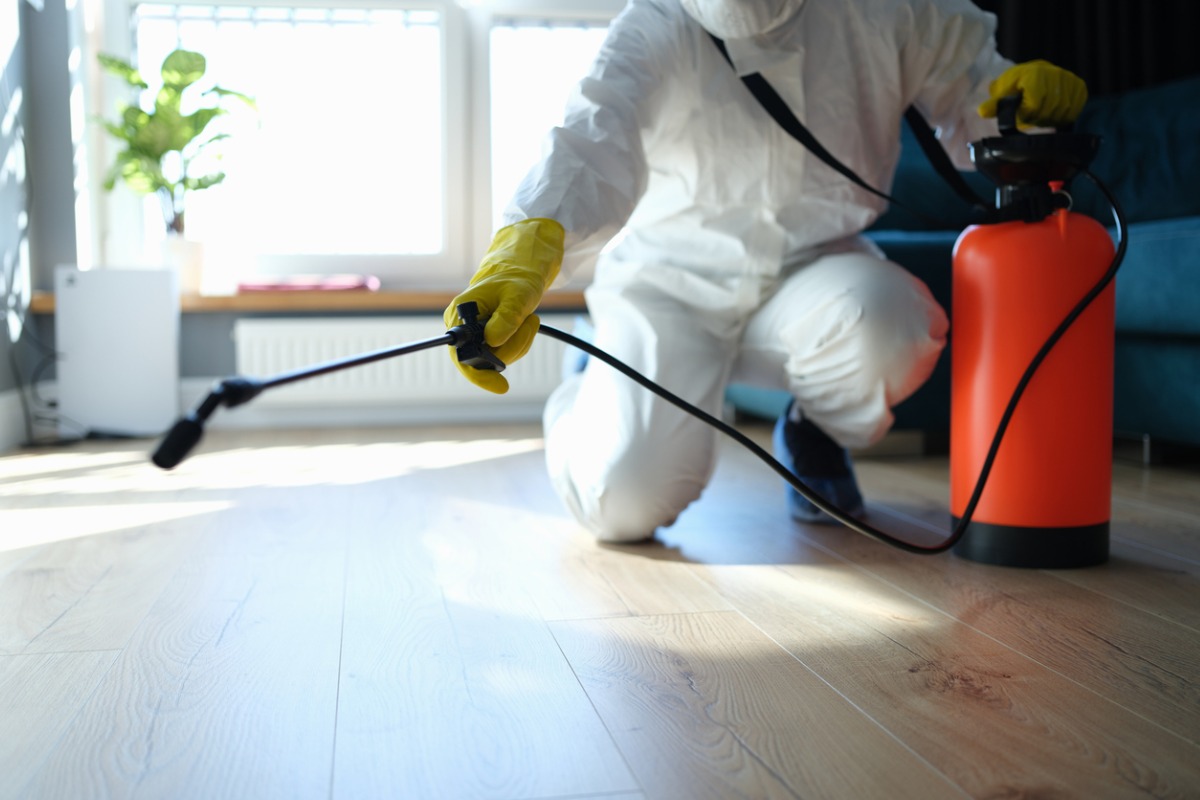Professional Wasp Control Coquitlam: Safe and Efficient Pest Removal
Professional Wasp Control Coquitlam: Safe and Efficient Pest Removal
Blog Article
Safe and Trustworthy Parasite Control for Lasting Defense
Efficient bug management calls for a complex technique that balances eco-friendly stability with the need for reliable pest reductions. The nuances of these methods might not be promptly clear, triggering a more detailed evaluation of the practices that can lead to sustainable bug control end results.
Recognizing Insect Control Methods
Pest control incorporates a range of methods focused on handling and eradicating unwanted bugs and rats that can endanger both health and property. Comprehending these approaches is essential for reliable pest monitoring.
The key categories of pest control methods include mechanical, organic, and chemical methods. Mechanical methods entail physical barriers and catches to avoid parasite entry and capture undesirable types. For instance, making use of displays on home windows or utilizing sticky traps can considerably minimize parasite populations without introducing hazardous compounds.

Chemical pest control is commonly the most recognized approach, using chemicals to remove bugs. These chemicals can be effective yet must be made use of with caution to stay clear of negative effects on non-target types and the atmosphere.
Advantages of Eco-Friendly Solutions
Exactly how can environmentally friendly services transform bug control methods? The fostering of environment-friendly parasite control methods provides various benefits, dramatically enhancing the performance and security of insect management.

One more advantage is the favorable effect on regional biodiversity. Eco-friendly solutions are created to target particular pests while preserving beneficial bugs and wild animals, advertising a balanced ecosystem. This method lines up with the growing consumer need for sustainable methods, enhancing the track record of parasite control providers.
Integrated Parasite Management Techniques
The execution of green solutions normally results in the fostering of Integrated Insect Monitoring (IPM) strategies, which further boost bug control efficacy. IPM is a holistic technique that incorporates several techniques to take care of pest populaces while reducing ecological effect. This technique highlights the usage of biological, cultural, mechanical, and chemical controls, making certain a balanced and lasting approach of insect management.
One essential facet of IPM is the thorough evaluation of pest task and ecological problems. By monitoring insect populations and identifying their life process, specialists can implement targeted treatments that disrupt the insect's environment or lifecycle, reducing dependence on chemical pesticides. Additionally, social methods such as crop turning and environment adjustment can dramatically lessen bug facility and reproduction.
Another essential component is using organic control representatives, such as beneficial insects or bacteria, which can normally reduce parasite populaces. When chemical applications are necessary, IPM focuses on using low-risk chemicals and uses them uniquely, reducing direct exposure to non-target organisms and human beings.
Including IPM techniques not just improves parasite control performance yet also advertises a safer community, straightening with the expanding need for lasting methods in bug administration.
Safe Practices for Homeowners
Recognizing the significance of safe techniques in parasite control can equip house owners to successfully handle pest concerns while securing their health and the atmosphere. Executing precautionary actions and safe approaches is critical in lessening direct exposure to visit damaging chemicals.
House owners must initially analyze their setting for problems that attract parasites, such as standing mess, water, and food waste. On a regular basis cleansing and sealing entrance factors can hinder pests from attacking the home. Utilizing natural deterrents, such as essential oils or diatomaceous planet, can supply effective options to chemical pesticides.
When chemical treatments are necessary, house owners need to choose for products that are especially labeled as safe for domestic use. It is vital to adhere to application standards carefully to stay clear of overexposure. Additionally, utilizing targeted therapies in locations where insects are identified, instead of blanket spraying, can considerably minimize chemical use.
Last but not least, preserving open communication with bug control experts is crucial. Property owners need to ask about the security of products made use of and demand environmentally friendly options whenever feasible. By adopting these secure methods, property owners can develop a much healthier living residential pest control company atmosphere while efficiently managing bug issues.

Tips for Long-Term Defense
Establishing a parasite management approach that highlights long-term defense can significantly boost the efficiency of the secure methods previously reviewed. To achieve this, property owners ought to implement normal examinations of their property, concentrating on hidden locations such as attic rooms, cellars, and crawl rooms. Early discovery of pest activity is vital in avoiding infestations from holding.
These techniques decrease attractants that attract pests into the home. Sealing entrance points, such as fractures around doors and windows, can properly block potential pest access.
Landscape design should additionally be considered; keeping plants cut and preserving a range in between vegetation and the home minimizes concealing areas for pests. Using natural deterrents, such as vital oils or diatomaceous planet, can better dissuade problems without turning to harsh chemicals.
Finally, working together with an expert bug control service for regular assessments can offer an extra layer of safety and security. These experts can supply customized recommendations and advanced therapies, making certain that Find Out More your home continues to be protected versus insects in the long term.
Verdict
Finally, safe and trustworthy parasite control requires a diverse strategy that stresses environment-friendly techniques and incorporated bug monitoring. By implementing all-natural deterrents, conducting normal examinations, and maintaining correct hygiene, homeowner can substantially decrease bug populations while safeguarding helpful bugs and the atmosphere. Partnership with specialist pest control services boosts the performance of these approaches, guaranteeing customized services that give enduring protection and satisfaction against future infestations.
Efficient parasite administration needs a multifaceted technique that stabilizes environmental stability with the requirement for reliable parasite suppression. The adoption of eco-friendly parasite control techniques supplies various advantages, substantially improving the performance and safety of insect management.The application of green solutions normally leads to the adoption of Integrated Pest Administration (IPM) strategies, which better enhance insect control effectiveness. exterminator coquitlam. By keeping an eye on pest populaces and determining their life cycles, practitioners can carry out targeted treatments that interfere with the bug's environment or lifecycle, reducing reliance on chemical pesticides.In conclusion, dependable and safe parasite control calls for a multifaceted technique that emphasizes eco-friendly approaches and integrated insect management
Report this page